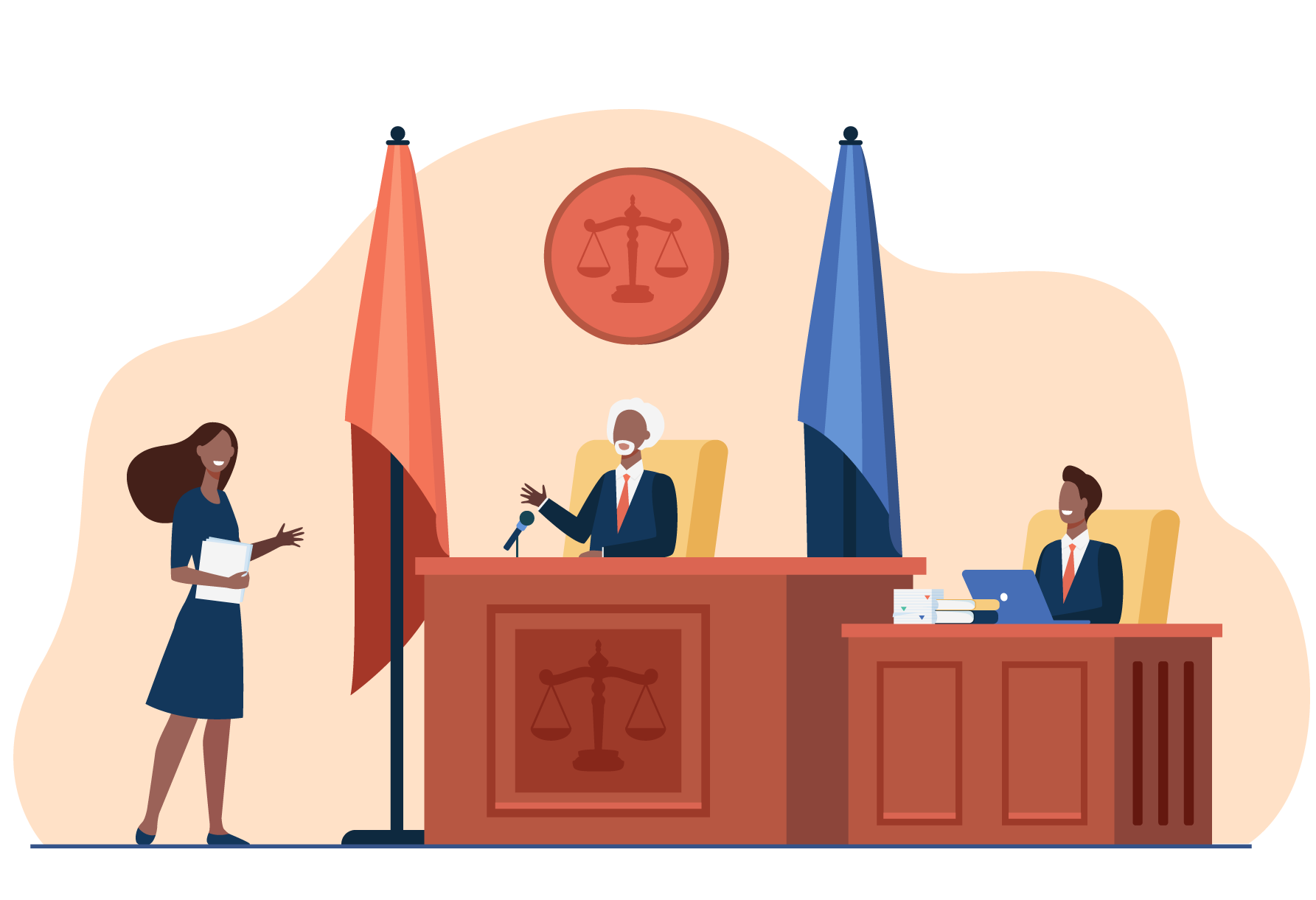By Dr. adem kassie abebe (ll.d)
Background
On March 2020, the Ethiopian House of Peoples’ Representatives adopted the controversial Hate Speech and Disinformation Prevention and Suppression Proclamation No 1185/2020. The law emerged in the backdrop of a string of deadly inter-ethnic clashes across the country, which the government was quick to link to viral speech and disinformation disseminated through broadcasting, social and print media.
While containing dissemination of hate speech and disinformation, which at times precipitates social discord and even violence, is necessary and legitimate, the resort to criminal law has generated concerns that the law could have a chilling effect on free expression and be used to stifle legitimate public deliberation. This fear is not unwarranted considering the rampant history of state abuses of legal process and the politicization (and tendency to overreach) of police and prosecution offices.
The Ethiopian law comes amid a flurry of similar laws across the African continent, from Kenya to Tanzania to Nigeria, as well as recurrent internet shutdowns ostensibly to stem promotion of violence and disorder. In all cases, the resort to criminal law purportedly to protect social peace and harmony and suppress inflammatory and violent expression, particularly on online platforms, raises critical issues on achieving the desired balance between freedom of expression and legitimate limitations. While the context in these countries is unique, their experiences could provide useful insights to understanding the consequences of the laws, and organising to advocate for change, and, whenever necessary, challenging their compatibility with constitutional and international human rights standards, including in the courts.
The brief is not intended to assess the propriety of the Ethiopian Proclamation, or its advantages and disadvantages. Instead, it seeks to contribute to creating public awareness about the law to help individuals freely exercise their freedom of expression, while also understanding the prohibitions in the law. Readers should note that there are some discrepancies between the English and Amharic versions of the law. This brief is based on the Amharic version, which is legally authoritative.

Know the law
Considering the potential for overreach and self-censorship, creating a clear understanding of the law among law enforcement officials, judges and the broader public is crucial to ensure that the law’s suppressive net is not cast too wide. This brief note seeks to throw some light on the law to enable ordinary men and women (but also law enforcement officials and media and online platform managers) to understand:
- What is prohibited and penalties attached;
- The burden of proof; and
- Acceptable and unacceptable defences.
Before defining hate speech and disinformation, it is crucial to understand that the right to freedom of expression is the principle while limitations on the right are the exception. Accordingly, the crimes of hate speech and disinformation must be understood strictly and the burden of proof beyond reasonable doubt lies with state authorities.
What is hate speech?
Under the law, hate speech occurs when two conditions co-exist:
- Deliberate incitement (English version says promote, which is less severe than incitement) of hatred, discrimination or violence;
- Against a target group – a person or discernible group based on ethnicity, religion, race, gender or disability.
Accordingly, hate speech exists only when done knowingly. But violence is not a requirement:
- Under the law, if the two conditions exist, there is hate speech, regardless of whether the speech has or is likely to trigger public disturbances or violence against the target group.
NB: Because the nature of hateful expression depends on historical relationships, familiarisation with commonly used derogatory words/ expressions is critical for the proper understanding and application of the law. In this regard, PeaceTech Lab is developing a Hate Speech Lexicon (dictionary) for Ethiopia.
What is disinformation?
Disinformation relates to information that:
- A person knows to be false or should upon basic checking know to be false; and
- Is highly likely to cause public disturbance, riot, violence or conflict.
Accordingly, unlike hate speech, the high likelihood of disturbance or violence is part of the definition of the crime of disinformation.
IMPORTANT: hate speech and disinformation do not prohibit criticisms of the government or public officials.
When is hate speech or disinformation a crime?
The law does not punish hate speech or disinformation as such.
- It is only the dissemination of hate speech or disinformation tomany persons that is punishable.
- The law is not clear on the number of people the message should reach, but sharing beyond the close circle of friends and family may be needed.
Liking or tagging content considered hate speech or disinformation is not considered dissemination and is therefore not punishable.
How can hate speech or disinformation be disseminated?
The manner of dissemination of hate speech or dissemination does not matter, and may include:
- In person – e.g. in large meetings.
- Via television or radio;
- On social media, such as Facebook;
- On messaging/calling apps, such as Telegram; or
- Any other online platforms, such as online publications and personal websites.
IMPORTANT: The law does not prohibit the generation or production of content that constitutes hate speech or disinformation. The prohibition is against dissemination of such content for ‘many people’.
- So a person who disseminates such information could be punished, while the person who produced it may not.
Valid legal defences
A suspect would not be considered to have committed an offence if:
- The person had no intention of promoting or disseminating hate speech;
- The person can show the accuracy of information, or had no knowledge of the falsity of information and he or she had made efforts to verify accuracy;
- Truth is a defence against charges of disinformation.
- If the disinformation was not likely to trigger public disturbance or violence;
- If the speech or information is presented in the form of political commentary, rather than a statement of fact or news report; or
- If the speech or information was part of:
- An academic study or scientific inquiry;
- News report, analysis or political critique;
- Artistic creativity, performance or other forms of expression; or
- Religious teaching.
Invalid defences
- The following do not provide a legal defence against charges of hate speech or information:
That the person did not create the content. The law punishes dissemination, not generation of hate speech or disinformation. Criminalising the mere creation of hateful content or disinformation could unduly stifle creativity in a manner manifestly incompatible with freedom of expression. The focus on dissemination as the defining feature of the crimes is therefore necessary and understandable.
• That the person deleted the content after it has been disseminated.
- But this could allow courts to impose less serious punishment of community service, rather than imprisonment or fine.
- That the speech or information was in response to attacks against people belonging to his or her group.
- That the person was responding to others who said or posted offensive statements about him or her or to persons belonging to his or her group.
What are the penalties?
If finally convicted by a court of law, a person faces serious penalties.
- Hate speech: the punishment may reach up to two years imprisonment or up to 100, 000 Birr.
- Disinformation: the punishment may reach up to one-year imprisonment or up to 50, 000 Birr fine.
Aggravating factors:
If hate speech leads to attack on a person or a group, the offender will face imprisonment between one and five years, without the option of a fine.
- If violence or disturbance occurs as a result of disinformation, the punishment ranges between two- and five-years imprisonment.
- If hate speech or disinformation is committed through social media accounts with more than 5,000 followers or through television, radio or print media, the punishment can reach up to three years imprisonment and fine of up to 100, 000 Birr (while under the Amharic version both imprisonment and fine are imposed simultaneously, the English version says imprisonment or fine, making them alternative).
Mitigating factors
If the hate speech or disinformation did not lead to disturbance or violence, courts have the discretion to sentence offenders to community service, rather than imprisonment or fine.
Importance of societal context
The prohibitions against hate speech and disinformation are intended to prevent the disturbance of social cohesion and stability. What constitutes hate speech or disinformation therefore depends on historical relations and narratives between groups.
- As such, while in principle disinformation can be ascertained based on reference to accuracy of information, in a context where historical events are deeply contested, defining disinformation is bound to be controversial.
- Hate speech is even more difficult to ascertain as it largely depends on how the target group understands the message as hateful or discriminatory.As law enforcement officials – the police, prosecutors and judges – are all part of society and amenable to group sensitivities and narratives, the chances of inconsistent application of the laws are high. Any perception of such selective or inconsistent application of the laws could endanger the social cohesion and stability the laws seek to promote.
Beyond criminalising hate speech and disinformation
While individuals should take responsibility and caution in the exercise of their freedom of expression, long term success in the battle against hate speech and disinformation may lie outside the realm of criminal law. In this regard, resources should be invested more in enhancing digital literacy and actively promoting inter-group knowledge and understanding. Ultimately, the goal should be to make the criminalisation of hate speech and disinformation unnecessary.
Indeed, the law imposes obligations on the Ethiopian Broadcasting Authority to promote public awareness and media literacy campaigns to combat disinformation, and on the Ethiopian Human Rights Commission to conduct public awareness campaigns to combat hate speech. This is further complemented by the duty of social media service providers to suppress and prevent the dissemination of disinformation and hate speech, and to remove disinformation or hate speech upon receiving notifications within 24 hours.
It is critical to note that the major social media platforms have their own community rules and standards for users, including a ban on hate speech. Nevertheless, the definitions of hate speech do not necessarily overlap with that provided in the Ethiopian law. For instance, Facebook bans hate speech which it defines as ‘as a direct attack on people based on what we call protected characteristics — race, ethnicity, national origin, religious affiliation, sexual orientation, caste, sex, gender, gender identity, and serious disease or disability’. Twitter has similar rules and bans hateful content that promotes ‘violence against or directly attack or threaten other people on the basis of race, ethnicity, national origin, caste, sexual orientation, gender, gender identity, religious affiliation, age, disability, or serious disease’, or the use of hateful images or symbols as a profile image or profile header. The differences in the definition mean that an expression may be considered hateful under the law, but not necessarily under Facebook or Twitter rules, or vice versa.
Interact with us!
- Have you heard or read about the Hate Speech and Disinformation Proclamation?
- How do you understand the content of the Proclamation?
- What has your experience with the Proclamation been? Do you, or people you know, feel more constrained in your exercise of freedom of expression because of the law?
- Do you think the law should be reformed or repealed?
PDF of the report
 Loading…
Loading…








